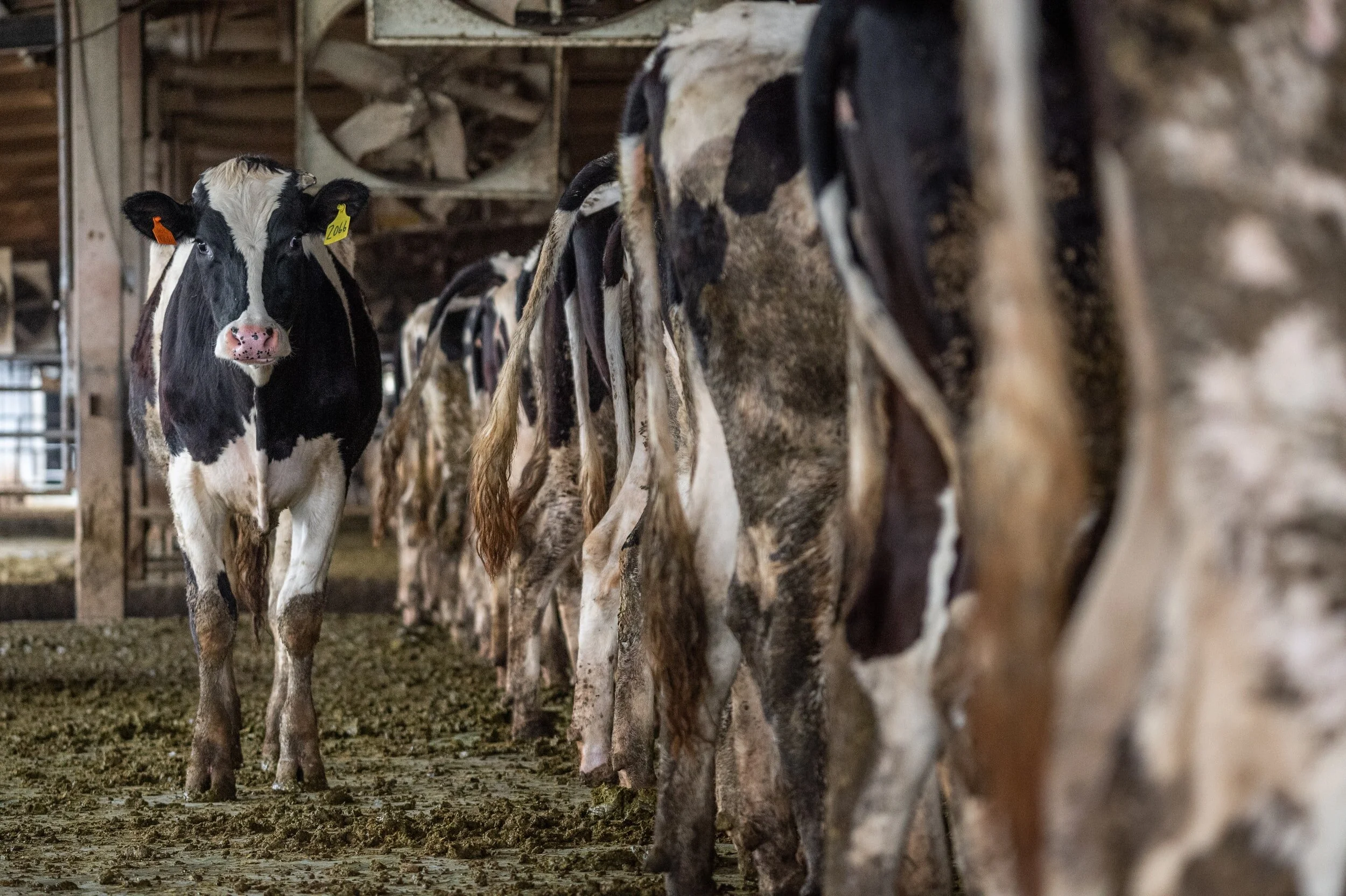Açaí-harvesting communities in the Brazilian Amazon are demanding that companies like Sambazon address head-on the major risks associated with sourcing açaí, and that they restructure sourcing practices to maximize benefits to communities – not pretend that human rights risks are not present. Sambazon should put its money where its mouth is and make sustainability a reality in its supply chain – or, at least, ditch the misleading marketing. When businesses sell products that are likely made with hazardous child labor, they should not be able to paint a rose-colored image of sustainability to consumers.
CAL provee evidencia de la complicidad empresarial en el conflicto armado a la Jurisdicción Especial para la Paz en Colombia
Corporate Accountability Lab presentó recientemente a la Jurisdicción Especial para la Paz (JEP) la primera parte de un informe sobre el papel de las empresas multinacionales en el conflicto armado. El informe sirve para apoyar las investigaciones del tribunal de justicia transicional sobre los crímenes cometidos en regiones como el Cesar y el Magdalena Medio a través de asociaciones entre agentes del Estado, paramilitares y "terceros" ("terceros civiles" o "no combatientes"). La última de estas categorías es muy amplia y puede incluir a las empresas.
CAL Provides Evidence of Corporate Complicity in Armed Conflict to Colombian Peace Tribunal
Corporate Accountability Lab recently submitted the first half of a report about the role of multinational companies in the armed conflict to the Special Jurisdiction for Peace (JEP, for its acronym in Spanish). The report serves to support the transitional justice tribunal’s investigations into crimes committed in regions including Cesar and Magdalena Medio through associations between state agents, paramilitaries, and “terceros” (“third party civilians” or “non combatants”). The last of these categories is very broad and can include corporations. The role of all actors–not just combatants–must be reckoned with to achieve justice and sustainable peace in Colombia and beyond.
CAL joins amicus brief supporting victim-survivors of human trafficking in Thai factories serving U.S. seafood market
CAL and 18 other human rights organizations recently filed an amicus brief with the United States Ninth Circuit Court of Appeals in support of the plaintiffs in Keo Ratha, et al. v. Phattana Seafoods, Co. Ltd. et al. (Ratha). The Ratha plaintiffs, Cambodian villagers living in poverty, allege that several US and Thai companies violated US and international law by engaging in a joint venture that relied on trafficked and forced labor of plaintiffs and others to produce shrimp and seafood for export to the US market. The amicus brief, written by Global Labor Justice-International Labor Rights Forum, supports the plaintiffs’ petition for rehearing en banc of a Ninth Circuit decision that would preclude them from seeking redress against the defendants and set dangerous precedent for other victims of trafficking and forced labor seeking justice in US courts.
Organizing against Giants: Workers Assert their Rights at Starbucks, Amazon & Beyond
Since late 2021, worker organizing efforts in the United States have culminated in multiple victories against corporate giants, including the country’s first successful unionizations at Amazon and Starbucks. Even if the broader state of unionization in the US is still bleak, this organization of workers is an important step forward on the road to challenging unsustainable business models designed to profit at the grave expense of workers.
Enbridge and the Dangers of Extractive Industry-Police Alliances
Last month, The Guardian revealed that Canadian pipeline company Enbridge has paid Minnesota police more than two and a half million dollars for services including the surveillance and arrest of Water Protectors resisting the company’s construction of a new Line 3 pipeline. This post situates the Enbridge-police agreement in Minnesota and violent crackdown against Water Protectors at Line 3 within a disturbing global context rooted in colonialism.
Fair Trade USA & The Failures of Eco-Social Certification
When we choose to purchase a product that bears a certification label-- like a yogurt with a fair trade stamp-- we may assume that the workers and environment along the supply chain were respected in the product’s development. But the social auditing and certification industry behind such certifications do not always have the impacts we might think. Fair Trade USA’s recently-launched Certified Dairy label is an example of how social auditing and certification programs that are not worker-driven all too often end up as greenwashing and/or fairwashing schemes and fail the workers they are meant to protect.
Amazon’s Working Conditions in Alabama are the Tip of the Iceberg
In a 2019 segment on working conditions in Amazon’s eerily named “fulfillment centers,” Comedian John Oliver gave the world’s largest e-commerce company the brilliant faux-tagline: “Amazon: try not to think about it.” But as the world watched the historic unionization drive at an Amazon fulfillment center in Bessemer, Alabama unfold over the last several months, ending with a defeat to the organizers earlier this month, the reality of Amazon's labor practices have become harder to ignore.
Pourquoi nous avons créé un laboratoire social sur la responsabilité des entreprises en matière de justice transitionnelle
En collaboration avec l’African Coalition for Corporate Accountability (ACCA), la Comisión Intereclesial de Justicia y Paz (CIJP) et Dejusticia, CAL a récemment lancé le Laboratoire sur la Responsabilité des Entreprises pour une Paix Durable (Laboratoire CLASP, pour son acronym en anglais), un laboratoire social dont l'objectif est de faire progresser la responsabilité des entreprises dans les contextes post-conflictuels et transitoires du monde
Por Qué Creamos un Laboratorio Social sobre la Rendición de Cuentas Empresarial en la Justicia Transicional
En colaboración con el African Coalition for Corporate Accountability (ACCA), la Comisión Intereclesial de Justicia y Paz (CIJP) y Dejusticia, CAL recientemente lanzó el Laboratorio de Rendición de Cuentas Empresarial para una Paz Sostenible (Laboratorio CLASP, por sus siglas en inglés)-- un laboratorio social convocado para avanzar la rendición de cuentas empresarial en contextos posconflictos y transicionales en el mundo.
Why We Created A Social Lab On Corporate Accountability In Transitional Justice
In collaboration with the African Coalition for Corporate Accountability (ACCA), the Comisión Intereclesial de Justicia y Paz (CIJP), and Dejusticia, CAL recently launched the Corporate Liability and Sustainable Peace (CLASP) Lab-- a social lab convened to advance corporate accountability in post-conflict and transitional settings around the world.
Shell Must Compensate Farmers for Niger Delta Destruction
A Dutch appeals court reversed a lower court decision and found Shell Petroleum Development Company of Nigeria (SPDC), responsible for several oil spills impacting three Niger Delta communities. In a first for a Dutch court, it also found that Royal Dutch Shell, SPDC’s parent company, breached a duty of care for foreign operations.
The Bostock Decision & Protections for LGBTQ+ Workers
Last Monday, the Supreme Court decided 6-3 that Title VII of the Civil Rights Act of 1964 prohibits employment discrimination based on sexual orientation and gender identity. Even though there are limitations in Bostock's application, we should still see it as a victory for equal rights. There are real exceptions to these federal protections (RFRA, small employers, etc.), and we need to continue to fight to close those loopholes so that no workers experience discrimination. But with such a conservative -- and often ideological -- Court, this is a big win that we should celebrate.
CAL & EarthRights Launch Updated Guide to Foreign Legal Assistance Statute, Allowing Attorneys Suing Companies Access to Discovery Process in the US
In 2019, CAL partnered with EarthRights International to update their Guide to the Foreign Legal Assistance statute. Given that the US is an increasingly difficult jurisdiction for transnational human rights cases against companies, this tool provides an opportunity for workers and community members to access key evidence located in the US even where they may not have been able to bring suit there.
















